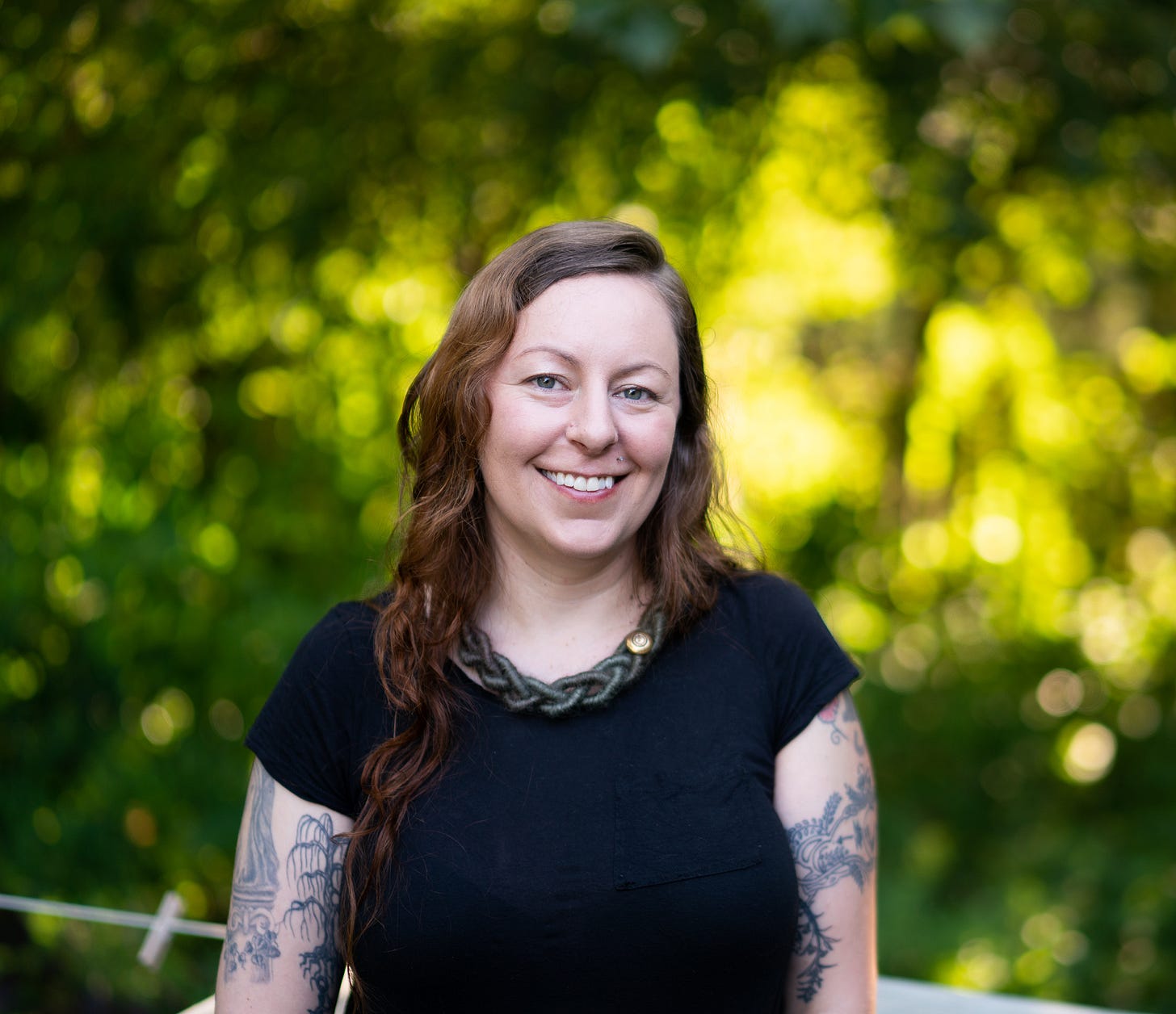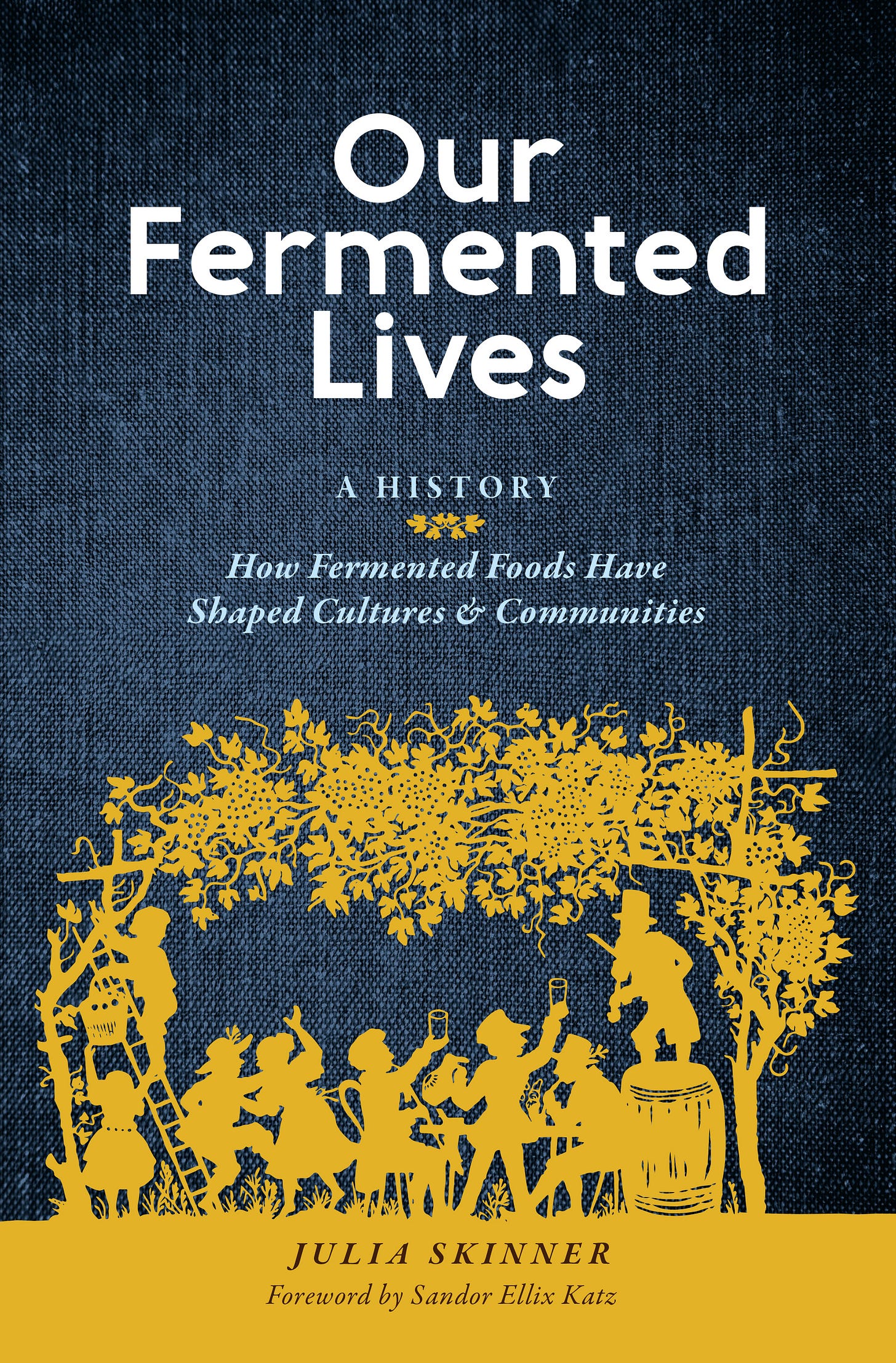Our Fermented Lives: An interview with Julia Skinner
I speak with Julia Skinner about everything from fermented sodas to the microbiome of our most treasured foods.
Fermentation harnesses the power of microbes to transform ingredients into value-added foods, and there are so many different techniques to this culinary craft! I speak with Dr. Julia Skinner—author of Our Fermented Lives and fermentation enthusiast, educator, writer, food historian, and founder of Root Kitchens. Learn more about Julia and her work by subscribing to Julia’s Substack newsletter with a free 60-day trial!
About Julia
Julia Skinner, PhD is the author of Our Fermented Lives and is a fermentation enthusiast, educator, writer, food historian, and founder of Root Kitchens. She has won multiple awards for her writing and her work with fermentation, food history, and community work, including being the only writer or culinary professional to win two 40 Under 40 awards in the same year. She lives in Atlanta, GA.
About the book
Description
From craft beers and sourdough bread to kimchi, coffee, tea, and cheese, fermentation is a popular topic in both food and health circles. In Our Fermented Lives, food historian and fermenting expert Julia Skinner explores the fascinating roots of a wide range of fermented foods in cultures around the world, with a focus on the many intersections fermented foods have with human history and culture, from the evolution of the microbiome to food preservation techniques, distinctive flavor profiles around the globe, and the building of community. Fans of fermentation, chefs, and anyone fascinated with the origins of various foods will enjoy this engaging popular history, which is accompanied by 42 recipes adapted from historic sources, including sauerkraut, corn beer, uji (fermented grain porridge), pickles and relishes, vinegars, ketchup, soy sauce, Tepache (fermented pineapple drink), vinegars, beet kvass, and more.
Praise
"Skinner pours forth so much historical and practical information about fermentation that her book is indispensable for all levels of readers intrigued by this ancient process."
―Booklist
"Julia Skinner has given us a necessary and user friendly field guide to the bacteria that give zest and tang to the ecology of our plates and pantries. This is an exciting addition to the body of home knowledge about our friend fermentation and how to wield its magic.”
―Michael W. Twitty, author of The Cooking Gene
"This profound and important text on the intersection of culture and fermentation offers not only history, but also guidelines on fermentation and recipes as well. How better to understand a culture or a time period than to understand and prepare its food?"
―Manhattan Book Review
Listen to the interview
Listen to the podcast on any of your favorite podcast streaming services. Subscribe to Foodie Pharmacology to access new episodes weekly! If you enjoy this and other episodes, let me know! Give is a 5-star rating on Apple Podcasts so others can find it and enjoy!
Watch the video
Available exclusively on the Teach Ethnobotany YouTube Channel, you can catch the full video version of this episode and others! Enjoy!
Yours in health, Dr. Quave
Cassandra L. Quave, Ph.D. is a scientist, author, speaker, podcast host, wife, mother, explorer, and professor at Emory University School of Medicine. She teaches college courses and leads a group of research scientists studying medicinal plants to find new life-saving drugs from nature. She hosts the Foodie Pharmacology podcast and writes the Nature’s Pharmacy newsletter to share the science behind natural medicines. To support her effort, consider a paid or founding subscription, with founding members receiving an autographed 1st edition hardcover copy of her book, The Plant Hunter.






